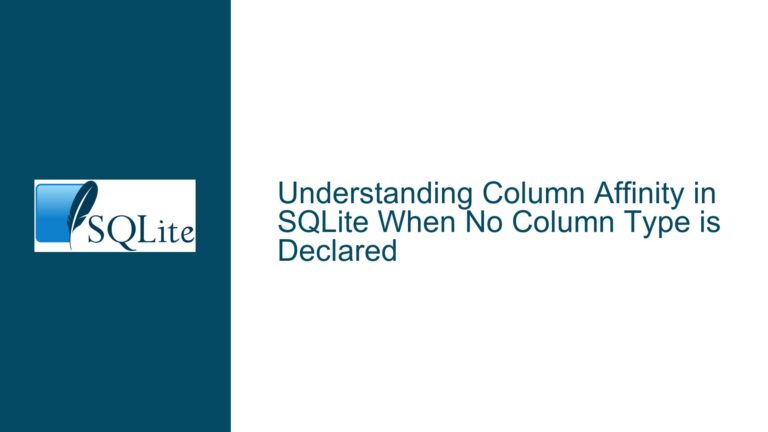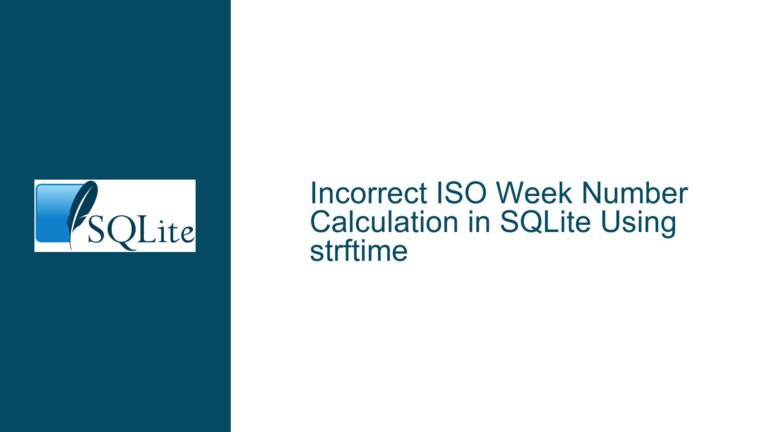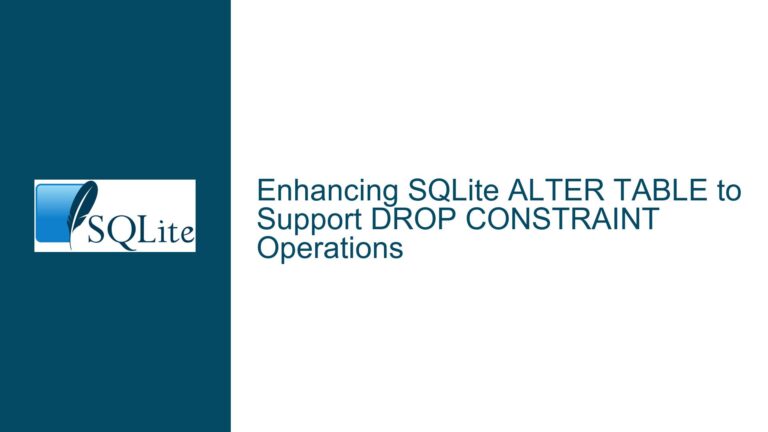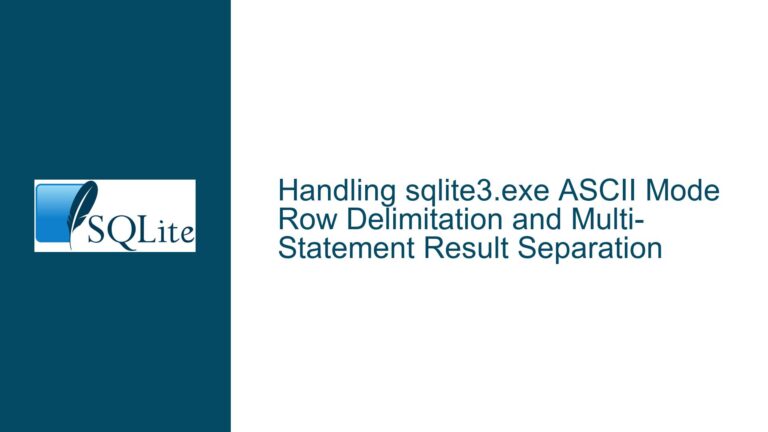Column Affinity in SQLite When No Column Type is Declared
Column Affinity Rules and Their Implications in SQLite SQLite’s type system is unique compared to other relational database management systems. One of its most distinctive features is its use of column affinity, which determines how values are stored and treated in a column. Column affinity is derived from the declared type of the column during…









